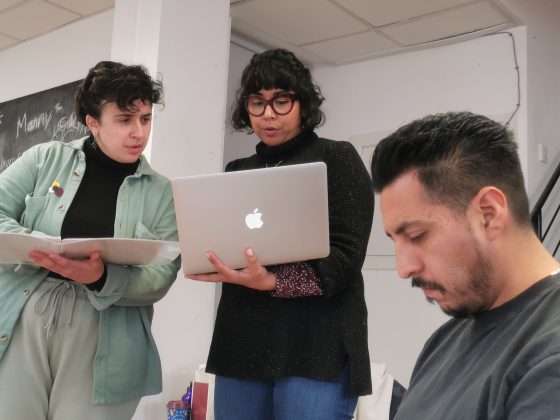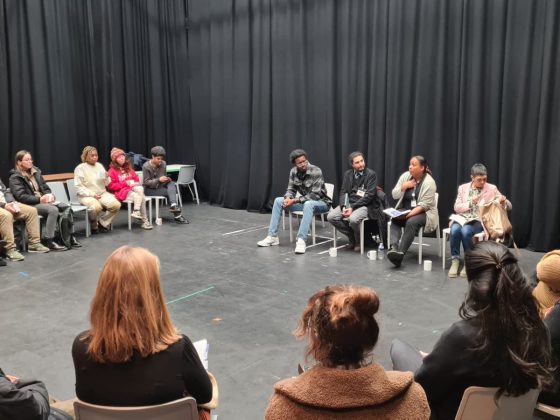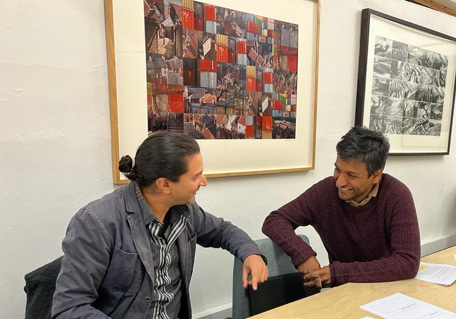Build a more inclusive, relevant and safe workspace
About the training:
Devised for performing arts organisations our Race and Allyship Training Programme is designed for staff teams and/or higher education students to gain an understanding of how racism manifests in the workplace and how allyship tools can be employed to combat racism and drive change in the industry.
We aim to create a shared understanding within the group (both those who have not experienced racism and those who have) of how to identify racism and enact allyship. We invite participants to actively engage in an open and honest conversation about race and racism, acknowledging the complexities that surround the issue.
The Programme includes two parts: Introduction to Race and Allyship (part 1) and Race and Allyship: A Deeper Engagement (part 2); the sessions build upon each other to provide a comprehensive understanding of racism and how to tackle its presence in the workplace.
In a recent report published by the Youth Futures Foundation in April 2024, a survey of more than 3,000 young people found that workplace discrimination based on ethnicity was the most frequently cited type of discrimination. Three in five (59%) Black respondents said they had faced workplace discrimination due to their ethnicity, compared to half (50%) of Asian respondents, and 48% of those from Mixed/multiple ethnic backgrounds.
In 2024, the Black British Theatre Awards conducted the Act for Action Report, a comprehensive investigation into the challenges and inequalities faced by Black professionals within the British theatre industry. Critically, respondents noted that diversity initiatives often fall short of meaningful change, with over 70% observing that diversity quotas and policies are more symbolic than substantive in practice. 71% reported experiencing racial bias within the industry, noting the predominance of White leadership in theatres.
Maya’s Race and Allyship Programme seeks to change this reality for the global majority members, by creating an open and safe environment to have meaningful conversations about race and allyship. We combine education with practices to create long-lasting and substantive behavioural change in the arts sector.
Training Programme prices are bespoke and dependent on charitable status and size of the organisation. We have a range of pricing options available.
“In London, the odds of working in the Creative Industries as a white and privileged person are one in five – double the chance of those from ethnic minority working class backgrounds.”
– Carey, H, O’Brien, D & Gabel, O, 2021.
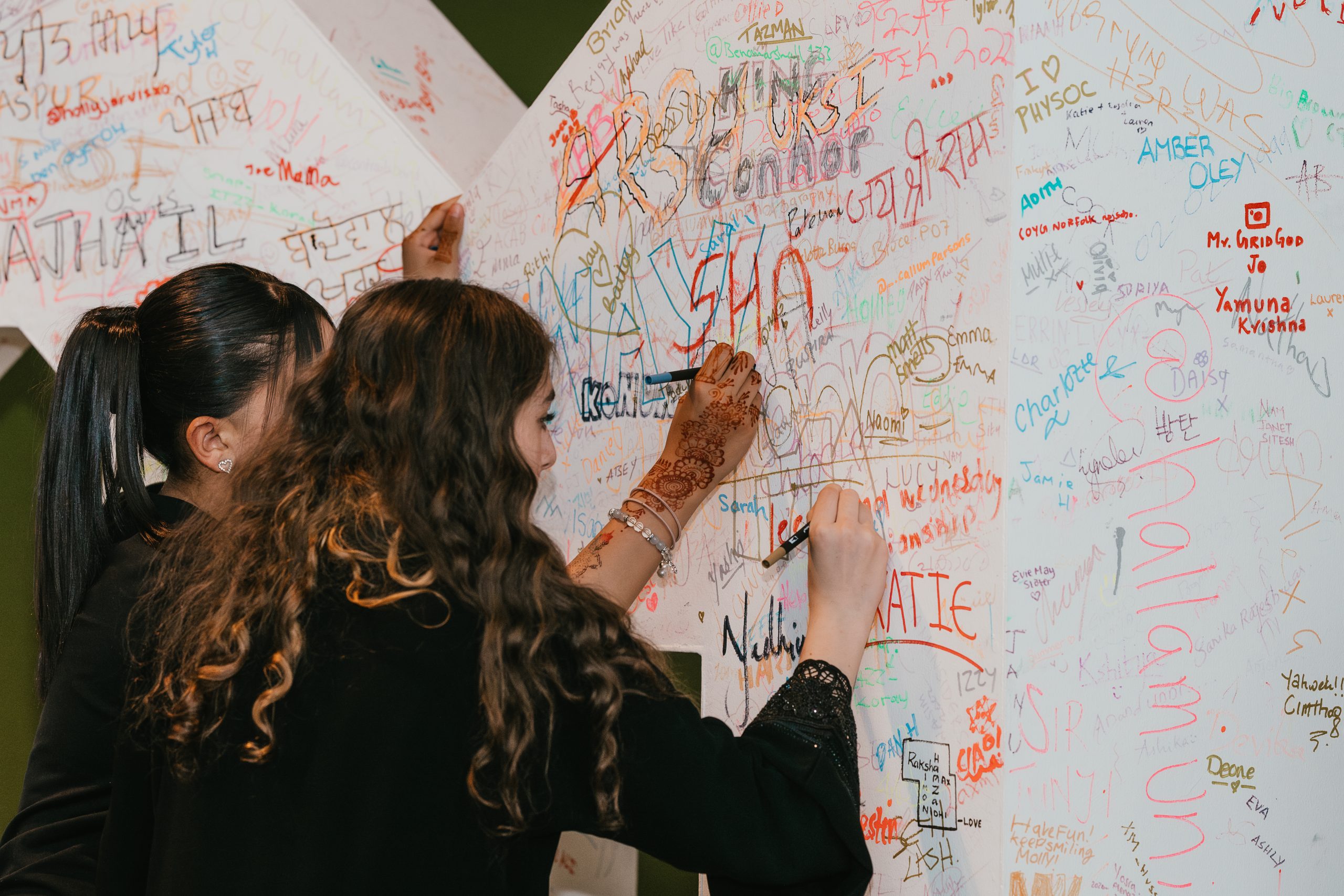
The courses in detail:
Introduction to Race and Allyship (part 1)
This session is for staff teams and/or higher education students to gain an understanding of how racism manifests itself in the workplace and how allyship tools can be employed to combat racism and make a change in the industry.
About the course
Our aim is to create a shared understanding within the group (both those who have not experienced racism and those who have) of how to identify racism and enact allyship. We invite participants to actively engage in an open and honest conversation about race and racism, acknowledging the complexities that surround the issue
The session will use discussion, interactive activities, group exercises, solo and pair work to open up conversations around the topic of Race and Allyship. It will use examples from the performing arts and invites individuals to think about their own working environments and behaviours.
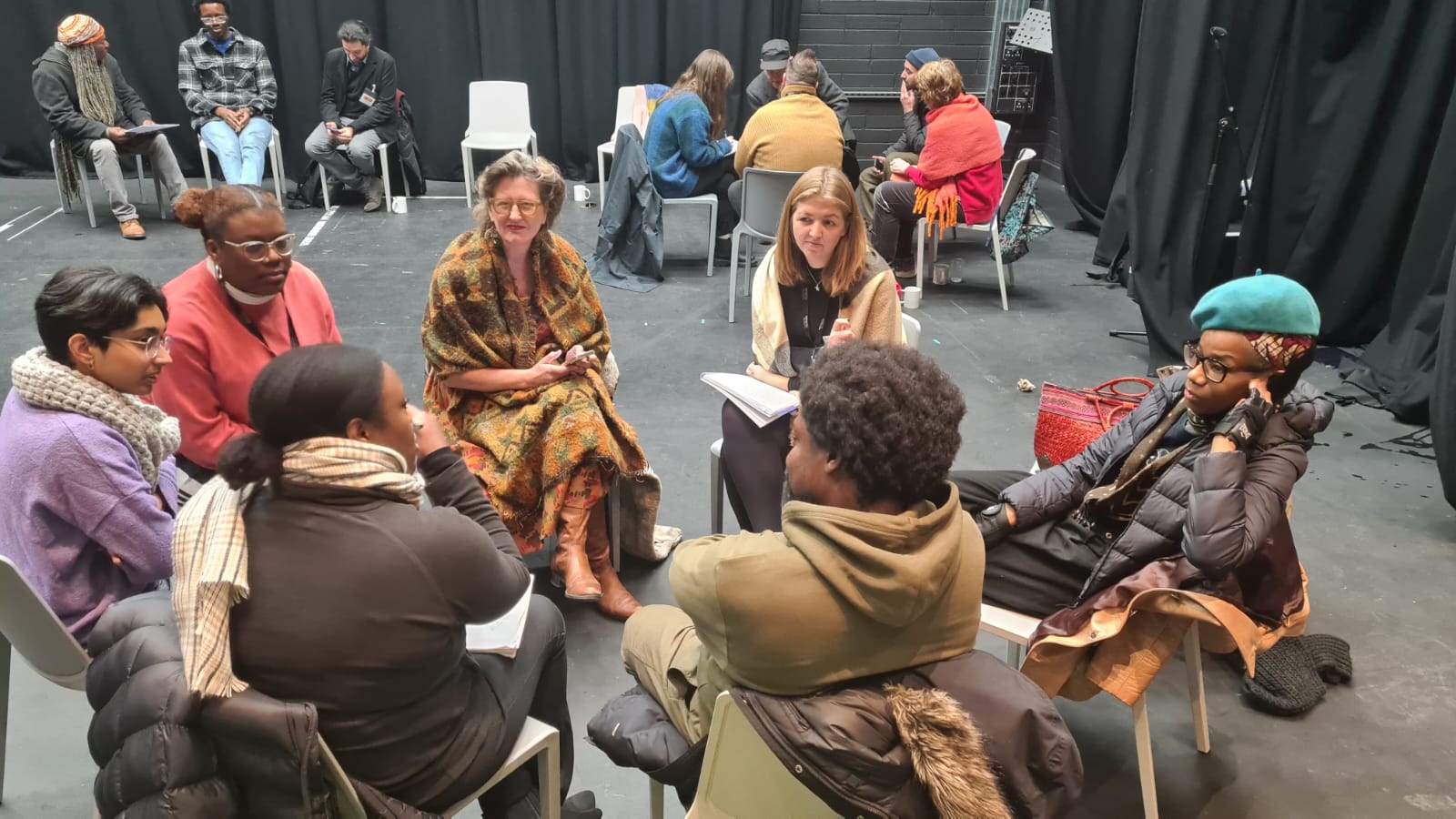
Content overview:
- What is Allyship?
- Terminology
- Interpersonal racism and its impact
- Understanding Intersectionality & Privilege
- Exploring Active Listening as a Tool
- Learning through Scenarios
Takeaways
- A greater understanding of racism and its impact.
- Several ways in which to take action as an ally.
- Increased confidence in addressing racism
- A set of tools to use to support others
- Knowledge of how to contribute to the creation of inclusive working environments, where everyone can flourish and do their best work.
Duration & Capacity
3.5 hours for up to 20 participants
If you’d like to learn more about our Race and Allyship training sessions, contact Ada Onyekwelu at info@mayaproductions.co.uk
Race and Allyship: A Deeper Engagement (part 2)
For those who have completed the Introduction to Race and Allyship. This session moves to exploring the roots and realities of racism today, how race impacts on representation in performing arts and looks at sector and organisational systems and structures that uphold racism with a focus on how to dismantle them for your organisation.
This training is for senior leaders, trustees, managers, as well as staff teams. Involving those throughout the organisation supports this training to be effective in highlighting policies and procedures to take actions on.
About the course
This second session involves presentations, individual work and group discussion. It opens up the historical context and highlights the impact of racism on performing arts workers from the global majority.
Time is spent considering the performing arts sector and how its image, buildings, and ways of working can contribute to barriers to participation. Finally, the lens is turned on the organisation and its specific policies and procedures (or lack of them) that may uphold racism.
Participants explore what specific options, actions and opportunities there are for the organisation to take the next steps towards an inclusive organisational culture that is accessible and anti-racist.
Content overview:
- Exploring the Roots and Realities of Racism
- Representation and stereotyping within the Performing Arts
- Systems & Structures that uphold racism
- Organisational Policies/Procedures
- Options and Actions for Organisational Change
Takeaways
- A greater understanding of how embedded racism is, and its contemporary manifestations .
- Insight into the impact of the lack of representation/stereotyping and racism on Global Majority workers in the arts
- Critical Reflection on organisation’s own policies and procedures
- Set of Actions to start a process of making organisational change
Duration & Capacity
3.5 hours for up to 20 participants.
Why Train With Maya Productions?
This training programme has been developed by Maya’s Artistic Director, Suzanne Gorman, (in collaboration with Fay Jennet at Tonic Theatre).
Suzanne has undertaken significant research into barriers that global majority individuals face in the arts.
Her Clore/AHRC-funded project, Where Am I?, revealed how crucial black, asian & global majority role models and leaders are for workforce inclusion in the performing arts.
Subsequent research, including for organisations such as the National Theatre, has informed her approach to dismantling racial inequality in the arts.
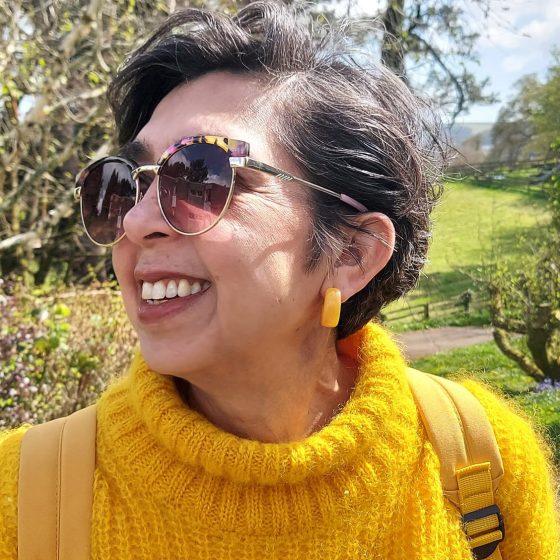
“[The workshop] was shaped in a way which felt inclusive and non-judgemental – everyone was instantly put at ease by her gentle yet sharp direction across very difficult and sensitive ground. I could see each of my colleagues gaining something of value from the experience, including those who were already familiar with the topic. Highly recommended.”
– Bronwen Price
The team
David Furlong
David Furlong is a mixed-race Mauritian actor, director, and founder of Exchange Theatre (2006), serving as its artistic director and producer. For over 20 years, he has worked extensively in London and France across stage, screen, and street theatre. As Young Vic Jerwood Director 2021, he created TEMPESTS on invisibilized mixed identities. His work often explores decolonising representation (Noor, The Great Experiment, The Cat in Reboots), and he trains in “Race & Allyship” for Maya Productions with Tonic Theatre.
Freelance credits include assistant director roles at the Royal Opera House (Madama Butterfly), National Theatre (Hadestown), and Young Vic (Orfeus). He has directed, translated, and adapted bilingual plays for Exchange Theatre, earning Off West End Award nominations. Acting highlights include The Flies, Misanthrope, and Macbeth (UK), and Romeo & Juliet and other French classics in France. He is a founder member of Migrants in Theatre and has taught drama for over 15 years in both French and English.
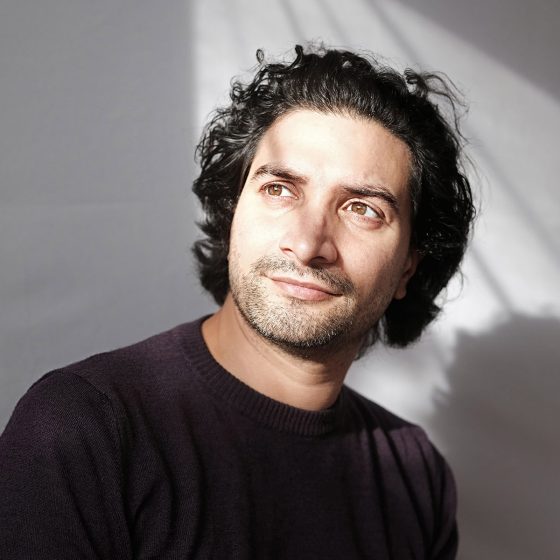
Breman Rajkumar
Breman is a Director (Directors Guild Award winner) and Dramaturg (Olwen Wymark Award winner), who regularly directs and teaches acting at drama schools, including Guildhall School of Music and Drama, Mountview and London College of Music. Breman was the inaugural Literary Manager at Bristol School of Acting, co-founded by Nancy Medina. Breman was awarded a scholarship onto the MFA Playwriting at the Lir Academy, Trinity College Dublin. Breman reads for the George Devine Award and ATG and has read for the National Theatre, Bush Theatre, Lyric Theatre Belfast, Kiln Theatre, Soho Theatre and Leeds Playhouse.
Breman was Resident Director at the National Theatre and was previously Resident Director at Kiln Theatre. He has directed at venues across the UK, including Lyric Theatre Belfast and Pleasance Courtyard Edinburgh. Breman was Associate Director on the UK Tour of The Best Exotic Marigold Hotel and various other regional and London productions. Breman has led workshops and projects for young people with NT Learning, Synergy Theatre and Maya Productions.
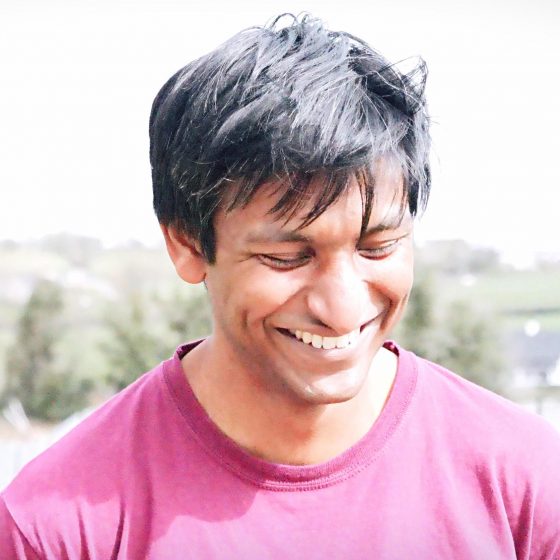
Feedback from participants:

